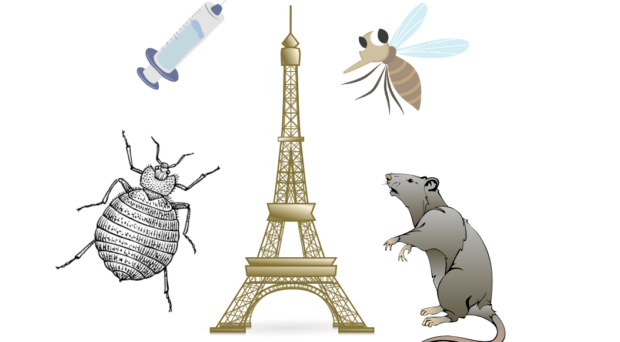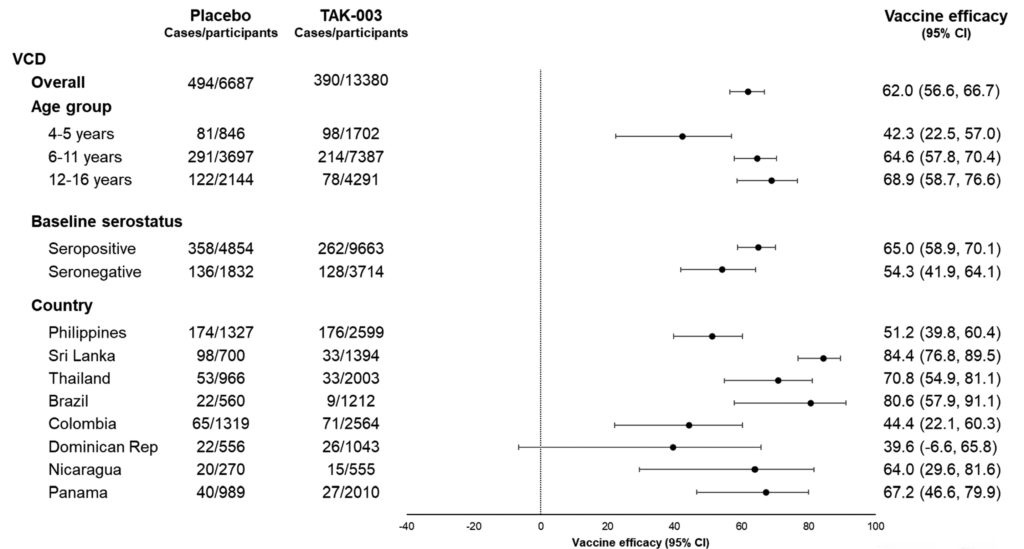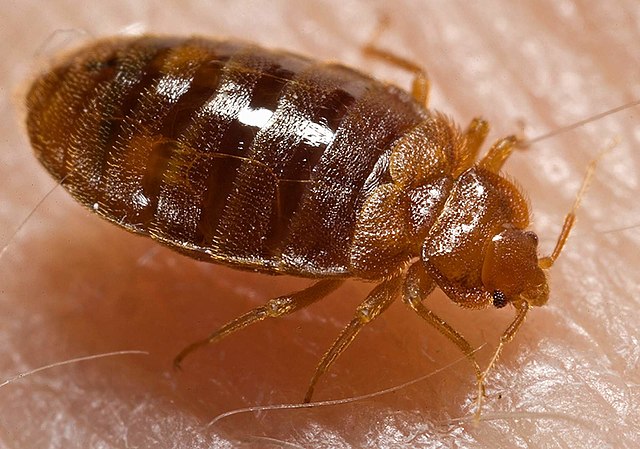
We’re living in a world where we’re mostly bombarded by horrible news from the media we consume, and parasites, vectors and vector-borne diseases are seldom featured. While it’s completely understandable that a person would choose to tune out all the terrible and/or irrelevant information, sometimes we can pick up some relevant stuff. Here, I share with you a few bits of news I heard through my sources (mostly on the radio) in the last few weeks that you might enjoy! Some of them are even good news!

First, as the best news of all, the WHO has recommended a new vaccine, the R21/Matrix-M for use for the prevention of malaria in children, based on the advice of the Strategic Advisory Group of Experts (SAGE) and the Malaria Policy Advisory Group (MPAG). I have previously reported on the status of the R21/Matrix-M malaria vaccine back in 2021, based on a preprint at the time on the promising results of a phase II trial in areas with seasonal malaria transmission. Now, a new preprint formed the basis of the recommendation of SAGE and MPAG, reporting on the results of phase III trial across five sites in four African countries. Out of these five sites, three had year-round permanent malaria transmission. At these sites, children between 5 and 35 month old received either the novel R21 vaccine or a rabies shot. Children received three doses four weeks apart, with a booster 1 year after the last of the three primary shots. They were then followed up to see if they developed clinical malaria, and how soon after vaccination. Similar to the phase II trial I reported in 2021, children vaccinated with the R21 were 75% and 68% less likely to develop malaria at seasonal and permanent sites, respectively, within 1 year after vaccination. The study also showed that vaccine efficacy was connected to high levels of antibodies against the conserved NANP repeat sequence of the circumsporozoite protein, which is targeted by the vaccine. This vaccine can be used at a five-fold lower dose (5 microgram) compared to the similar, but older RTS,S vaccine. The lower doses will make this new vaccine cheaper, and will also allow the production of up to 200 million doses per year. The recommendation of this new vaccine will facilitate the rollout of the R21 vaccine, along with the RTS,S vaccine, during 2024. The potential success of these new vaccines have spurred some calls to make sure that other facets of malaria control (such as indoor residual spraying or source reduction) are not abandoned.

The SAGE also recommended the live-attenuated quadrivalent dengue vaccine (TAK-003) for introduction in countries with high dengue transmission and disease burden. This recommendation was based on the results of a multiyear multi-country efficacy study in 4-16 year old children, where participants received 2 doses of the vaccine or placebo control with a 3 month gap. The most recently published study on this vaccine demonstrated continued efficacy of the vaccine against symptomatic dengue over a 3 year period at 62%, with a slight decline over time to 44.7%; but remained strongly efficacious against hospitalized dengue at 70.8%. One complicating issue for dengue is the existence of four different serotypes, basically four phylogenetically related but unique viruses causing dengue. Previously available dengue vaccines, such as Dengvaxia, was not recommended for people without prior infection with dengue, because vaccine-derived antibodies could facilitate more severe infection through immune enhancement. Efficacy of this new vaccine was also found to be higher in people who were already infected with dengue before vaccination, compared to those who weren’t, but no important safety risks were identified. The new vaccine was built on a DENV-2 backbone, and was found to be most effective to protect against DENV-1 and DENV-2, and less so against DENV-3 and DENV-4, especially in people who hadn’t had previous dengue infections. More severe cases with plasma leakage and thrombocytopenia were found in DENV-3 infected vaccinated cases, but most of these cases were documented in Sri Lanka where dengue cases are very closely followed for these symptoms, so are easier to notice. A booster dose is planned for a subset of the participants to see if vaccine efficacy can be increased by the booster shot to initial levels.

On a less positive note, bedbugs made the news in France, particularly in Paris. In the period between 2017-2022, more than 10% of French households reported bed bug infestations. The issue surfaced this summer when people started reporting sightings of bedbugs on public transport, in movie theaters, trains, and hospitals. In the previous decades, bedbugs have developed resistance to commonly used insecticides, which makes it difficult to eradicate infestations. Increased travel, such as tourism following the COVID-19 pandemic, can also contribute to increased levels of infestations. However, all is not lost! There are specific methods to avoid bedbug infestations, and to eradicate them, but they can be costly, and there’s still a societal stigma associated with these insects. Fortunately, to date no pathogen has been found to be vectored by these blood-sucking parasites. In fact, the authors of a review paper suggest that bedbugs might neutralize pathogens that they ingest through bloodmeals. Finally, there is hope for Paris, as the bedbugs might not stay forever. In New York City, bed bug complaints have significantly decreased from 2014 to 2020, while complaints for roaches and flies remained the same.
Bedbugs are not the only pests that Paris needs to deal with. Apparently, the Paris Mayor has given up on controlling rat populations, and formed a committee to investigate how to coexist with them. Just like Paris, New York City is still battling rats, and an amazing video was posted earlier this week in which a driver leaving Brooklyn notices a rat riding on the hood of his car. You can enjoy that here:
https://www.youtube.com/watch?v=8FOdaaxov9Q
Well, that’s it for our newsreel! I hope you enjoyed it! Let us know in the comments if you’ve seen or heard any relevant news in your travels!

Comments